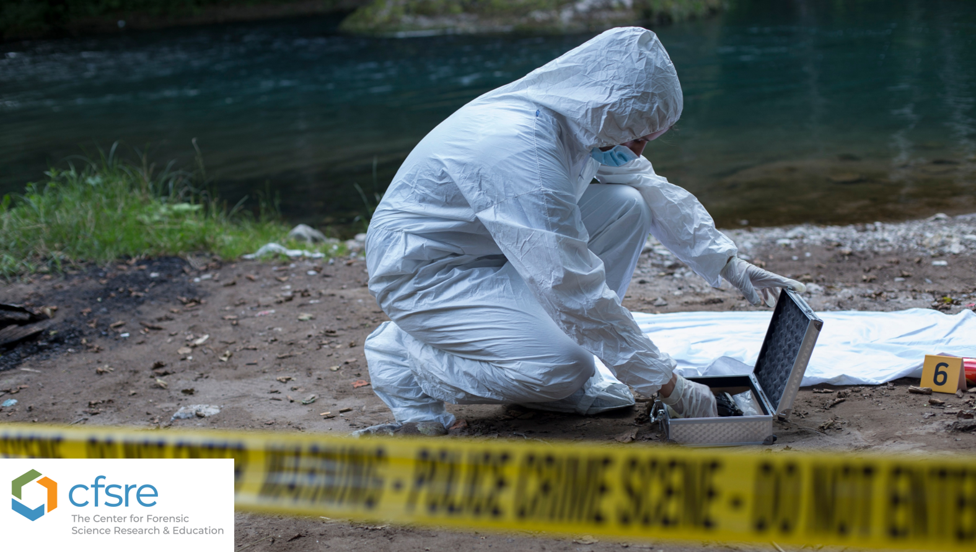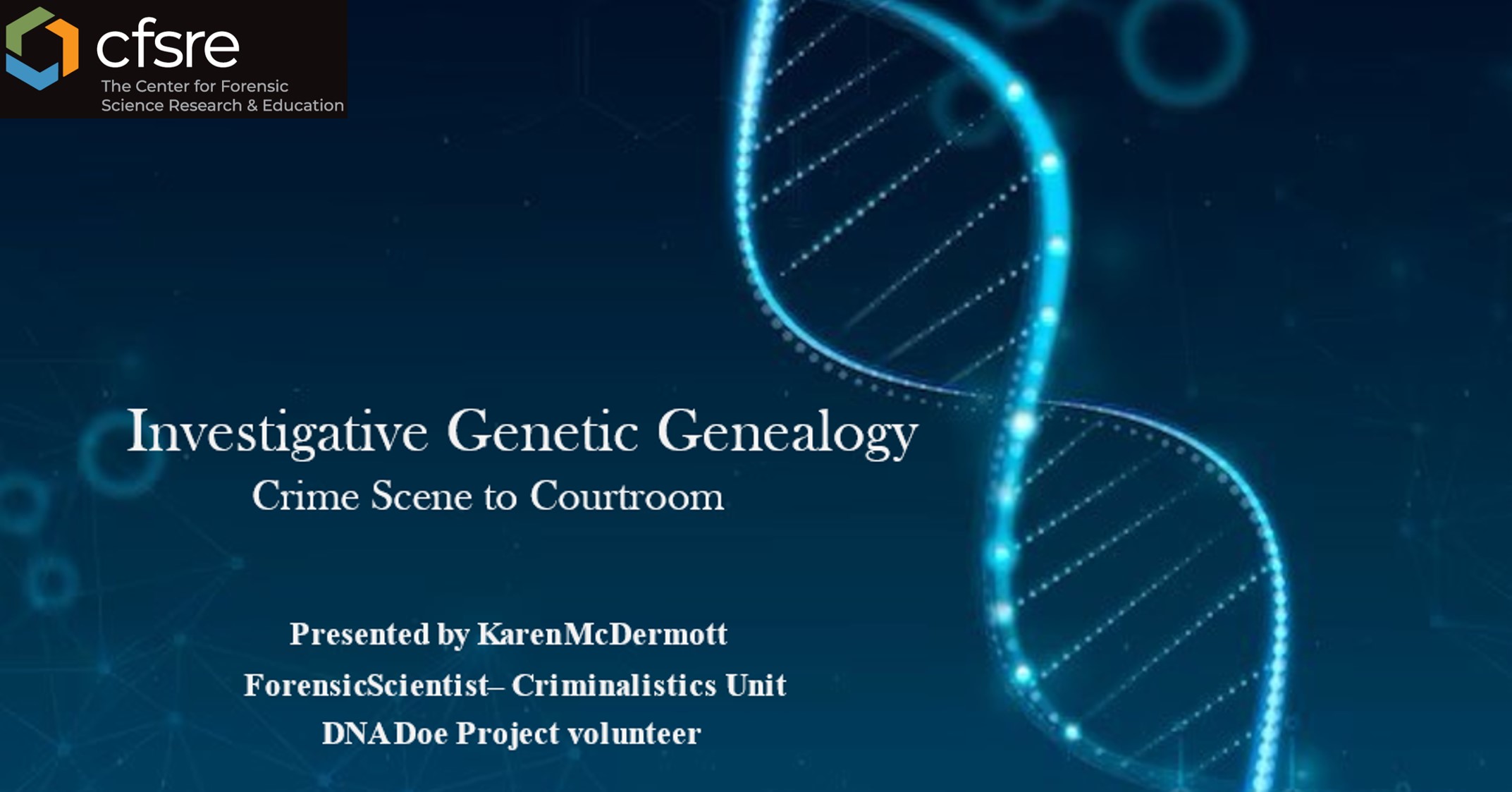Practitioners, educators, law enforcement personnel and the legal community require continuing education in the constantly advancing field of forensic science. Take advantage of our preeminent expert faculty to enhance your and your labs’ knowledge-base and skill-sets to stay abreast of novel developments in the field. With our comprehensive offering of engaging workshop and continuing education courses, online training courses, internships and certificate programs, you are sure to find a training opportunity to suit your needs. All of our professional development offerings provide you the chance to learn from dynamic faculty on unique topics as well as from internationally recognized leaders in their fields.
 |
Welcome to the 2024 Current Trends in Forensic Toxicology. The theme for this year's conference is “Global Perspectives in Forensic Toxicology: Trends, Partnerships, and Innovation”. This strategic choice underscores the growing necessity for collaborative efforts within the forensic toxicology community with our national and global partners, public health, and researchers. It is crucial for professionals in forensic toxicology to recognize the interconnectedness of their field with broader disciplines. While it may be tempting to remain solely focused on internal developments, the reality is that emerging drugs and trends often first come to light through other organizations such as public health. By actively engaging with professionals outside of the forensic toxicology realm, practitioners can gain early insights into new substances, patterns of use, emerging analytical techniques, and how toxicological data can influence policy.... |
View Course Details |
 |
Welcome to the 2024 Current Trends Symposium on Seized Drug Analysis. Now in its 7th year, this On-line Symposium has gained a reputation for creating a sense of community for forensic practitioners across the globe while disseminating timely and impactful information from recognized experts in their respective disciplines – a feat accomplished with no registration fee and no travel costs. We look forward to a week of exciting interactions with scientists and law enforcement agencies worldwide who will show how drug analysis methods and data can be used in the fight against drugs and organized crime.... |
View Course Details |
 |
Welcome to the 2025 Current Trends in Forensic Toxicology. The theme for this year's conference is “Innovating for a Smarter, Sustainable, and Efficient Future in Forensic Toxicology.” This year, we focus on the pressing need to embrace innovation that not only enhances our field's efficiency but also ensures a sustainable approach to forensic toxicology practices. This theme reflects the daily reality faced by many professionals: the challenge of delivering exceptional work while being asked to do more with fewer resources, all without compromising the quality and reliability of results. Our agenda is built around addressing these challenges. We’ll begin by sharing information on what drugs are being detected in different parts of the world, offering critical insights into global drug trends. Day two will focus on leveraging AI, machine learning and other technologies to streamline workflows. Mid-week, we’ll dive into sustainable practices, exploring how laboratories can adopt eco-friendly methodologies while achieving cost savings—proving that environmental responsibility aligns perfectly with operational efficiency. On day four, we tackle the challenges of backlogs and turnaround times, discussing innovative solutions to improve productivity without sacrificing quality or resource efficiency. Finally, we conclude with a dedicated focus on toxicological interpretation, emphasizing not only the importance of delivering accurate and insightful results but also understanding the boundaries of what can and cannot be stated based on the data available.... |
View Course Details |
 |
A warm welcome to the 2025 Current Trends in Seized Drugs Analysis Symposium! Get ready to experience a week of engaging presentations from scientists from academia, government, and industry. This year’s symposium focuses on knowledge, best practices, and advances in science that can help improve effectiveness and efficiency in our work. |
View Course Details |
 |
A warm welcome to the 2026 Current Trends in Seized Drugs Analysis Symposium! Get ready to experience a week of engaging presentations from scientists from academia, government, and industry. This year’s symposium focuses on knowledge, best practices, and advances in science that can help improve effectiveness and efficiency in our work. |
View Course Details |
 |
Forensic Science has exploded in popularity over the last two decades with no signs of a slowdown in the foreseeable future. Colleges and universities across the United States have been responsive to increased student interest and heightened job growth in this discipline by creation of forensic sciences programs at the undergraduate and graduate levels. Many of these programs have been designed with the intent of placement of graduates into accredited laboratories or agencies. Others were developed to meet market demand. Regardless of intent, the vast majority provide training and coursework focused broadly on criminalistics and specifically on either crime scene investigation or forensic biology and chemistry.... |
View Course Details |
 |
Over the last five years, Investigative Genetic Genealogy (IGG) has emerged as an extremely powerful tool that has revolutionized the field of cold case investigation. This webinar is an introduction to IGG and how the tool is currently being used to identify human remains and provide investigative leads to law enforcement agencies. Legal and privacy considerations related to the use of IGG, as well as limitations of the tool, will also be discussed.... |
View Course Details |
 |
Impaired driving is both public safety and public health concern in the United States. Obtaining accurate data about DUID problem is difficult due to a lack of consistent testing, no centralized reporting and emergence of new drugs and adulterants in the drug supply. The CFSRE is collaborating with forensic toxicology testing laboratories and the Regional Toxicology Liaison (RTL) program to evaluate impaired driving trends and provide resources to laboratories.... |
View Course Details |
 |
The International Alliance of Clinical and Forensic Toxicologists (IACFT), your free, virtual, and multilingual association, is dedicating its Autumn 2021 Virtual Meeting to URINE. Urine is the biological specimen with the multitude of both functionalities and pitfalls when used in the clinical or forensic toxicology decision making. Join us for this three day virtual meeting that will be discussing urine-based topics including:
• What Is a Urine Drug Screen and How Does It Work? • How Do False Positives and False Negatives Occur? • When and how to perform Urine Drug Confirmations? • Are Drug Quantitations in Urine Necessary or Could they be Misleading ? • What Interpretations can Confidently be Made? • Why does the way Urine gets collected matter? • Why Does the Urine Collection Timing Matter? • What Should You be Look Out For in Urinalysis ? • Is Metabolomics Analysis in Urine able to Identify Potential Biomarkers? • How to catch a Urine Drug Test cheat? |
View Course Details |
 |
Xylazine is a veterinary sedative commonly present alongside illicitly manufactured fentanyl in Pennsylvania’s drug supply, and reports of xylazine-associated wounds continue to grow across the state. Xylazine-associated wounds are now recognized as a distinct clinical entity, and in January 2024 PDPH released guidance on best practices for caring for individuals with xylazine associated wounds.... |
View Course Details |